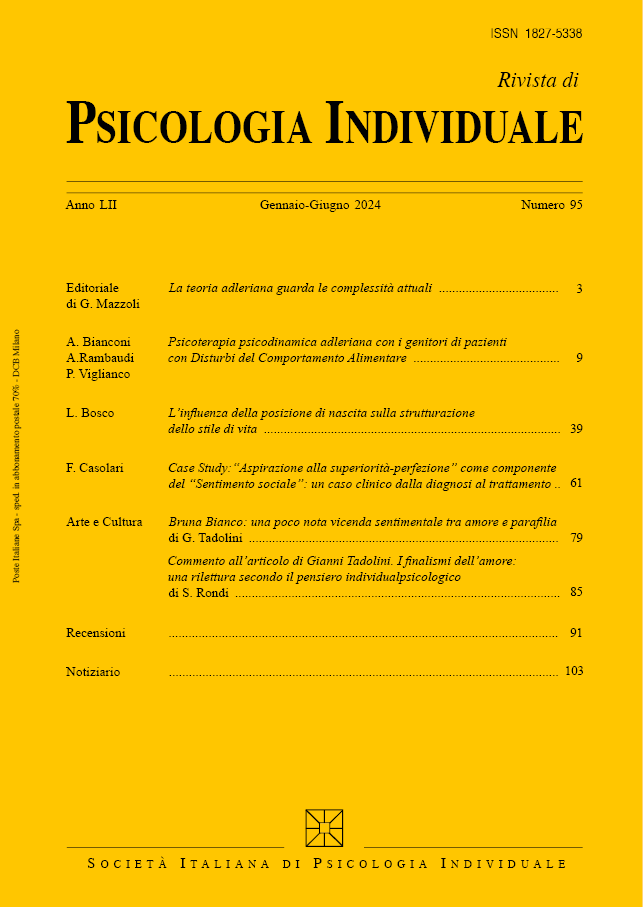CONNECTING MIND AND CULTURE. REFLECTING ON PSYCHOTHERAPY IN TECHNOLOGICAL ENVIRONMENT
Keywords:
neuroscienze dell'affettività, società liquida, tecnologie, complessità, cultura, tecnologia, mente, psicoterapia adleriana, neuroscienzeAbstract
The latest evidence resulting from neuroscientific research is emphasizing and confirming the role of experiences and environment in shaping neural circuits. The indications provided by the studies on epigenetics allow us to grasp even more the importance of shared culture, which has to be considered the matrix that shapes the mind of individuals from generation to generation.
The role of culture is particularly emphasised, not only in the anamnestic aspects of the past -consolidated during early childhood with in interaction with caregivers, but alsoin actual ones, as asset of conditions, constraints, beliefs, attitudes and values that are reificated in the real life contexts of people, helping to shape them. While maintaining the central importance of working, in the clinical practice, on the unique and particular way in which these experiences are experienced by our patients (Omnia ex opinione suspense sunt), we will explore which environmental characteristics directly or indirect ly people daily experience.
Starting from Bauman’s (2008) considerations on the “liquid society” and mass consumerism, we will analyze the characteristics of power systems and institutions, the messages conveyed by the mass media, the possibilities opened up by technological innovations and the hybridization of languages and customs.
The interconnections between individual and context aspects constitute a complex and constantly changing map in which, by remaking ourselves to the theory of complexity, we will try to orient our thinking starting from a position "on the sidelines of chaos"






